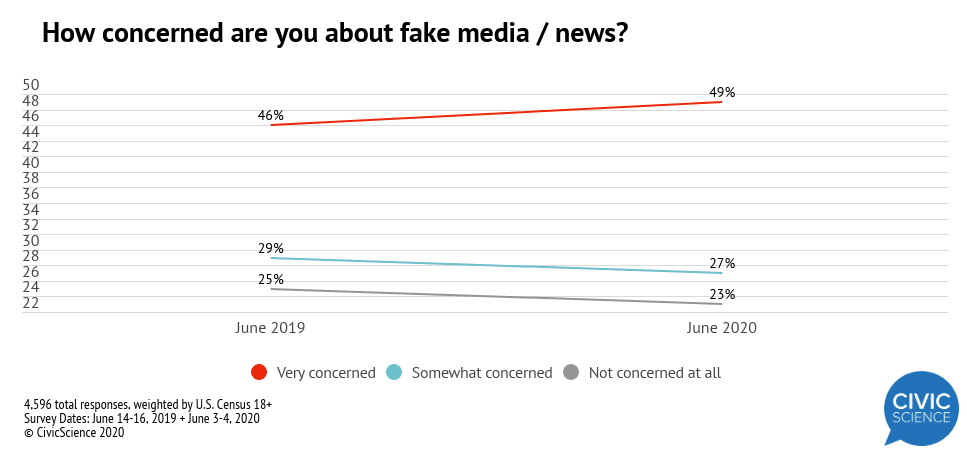Researchers at Carnegie Mellon found recently that nearly half of accounts tweeting about the coronavirus are likely bots. With the current demonstrations happening across the country in the first week of June, and November’s presidential election, the threat of fake news content may be even more so imminent.
A CivicScience study researched three technology and media topics regarding concern about fake news and fake video among the general public, as well as the comfort level of broad use of facial recognition.
Fake Media
The data indicate that people are much more concerned about fake video than they were at this time last year. Fifty-two percent of U.S. adults now say they are very concerned about fake video, up from 35% in June of 2019.
Fake media / news only saw a small bump of 3 percentage points in those who report they are very concerned about its existence.
Facial Recognition
Among U.S. adults, comfort level with the broad use of facial recognition is very low. Only 13% of U.S. adults say they are very comfortable with this technology, and roughly one-third of adults are somewhat comfortable. More than half, though, are either unsure or indicate they are not comfortable at all with facial recognition.
These topics aren’t going anywhere anytime soon. CivicScience will continue to follow Americans’ takes on them through 2020 and beyond.











